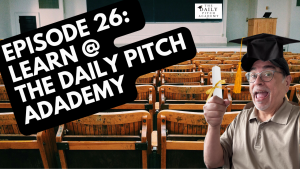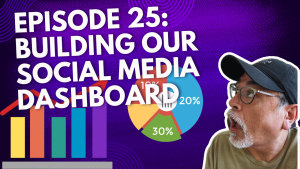The Role of Mentoring and Anti-Mentoring
I have spent the better part of my life mentoring and being mentored by some of the most wonderful leaders in the world. I empower others to believe in themselves and utilize the gifts they’ve been given to make the world a better place. For many of my mentees, the light of those gifts has been diminished, clouded with self-doubts, insecurities, and lack of confidence, even with the most accomplished leaders I have worked with. They have been taught that they are not as beautiful, as talented, as capable, or as gifted as they really are. As I explored these barriers, in almost every case there was another person or persons in their life who stole their light from them and laid the foundation for those walls. I call these people anti-mentors because they destroy rather than create, and they rob rather than give. I believe their influence is increasing in our lives and the lives of our loved ones, and I want to call them out for what they are. Importantly, just as I believe that each of us has the power to become a mentor to others, I also believe that we all have the power to become anti-mentors, sometimes intentionally, sometimes unintentionally through carelessness or lack of awareness. This article is about making deliberate choices and understanding the consequences that will follow.
The Impact of Our Choices
Recently, I had a wonderful conversation with a friend who shared an article that he had written about his life journey. At its core, it was about his personal life struggle between the two competing poles of “light” and “darkness” based on the personal choices that he made in his life, and the impact of those choices on himself and on others. We are all on this same kind of journey making the same kind of life choices every day. Each of these choices creates ripples that define us as either mentors or anti-mentors, based on our impact on others.
The Scars Left by Anti-Mentors
Think back in your own past, whether as a child or as an adult, when a person with power over you saw you struggle with something, and rather than helping you get better at it, they convinced you with words and actions that you did not have the ability or capacity to do better. Maybe it was at home, or in school or in sports, but my guess is that everyone reading this has had at least one experience like this in their lives where they got to experience an anti-mentor up close and personal. In your professional life, think about a time during performance evaluations when your manager focused on everything you are not rather than everything that you could be. Even the most effective mentoring can struggle to overcome these negative impacts.

Our Daily Interactions and Their Impact
To bring this to a personal level, think about the time from when you got out of bed this morning until you opened your LinkedIn account and read this. Over those few hours, how many interactions did you have with other people, those you knew as well as those you did not know? What ripples did you create through those interactions, whether it was in what you said, how you looked at them, or how you acted in their presence. Did you lift them up or tear them down? Did you bring them joy or sadness? Were you respectful and kind, or judging and critical, especially to those you live with and work with? Did you create opportunities or hinder them? Every day in these actions big and small, we choose to be present and giving, or not. What you do matters more than you know. Even when you don’t think anyone is watching, they are, and you impact them. As you make decisions to walk in the light or in the darkness, you are either a giver or a taker (Daniel Quinn, Ishmael), a mentor or an anti-mentor. The opportunity is yours to either give life to those around you, or to rob them of their purpose, their gifts and their potential. Mentors create opportunity and see true potential, anti-mentors hold others down, judging what they can and can’t do and creating waves of insecurity and self-doubt with their passing. Anti-mentors can be found everywhere, from within the leadership of some organizations and their HR departments, to our homes and schools where too many teachers and parents are anti-mentors. No one is born an anti-mentor – it’s a path chosen deliberately or carelessly, but always personally. The message is elegantly simple – just be aware of your impact on others and be a positive influence on everyone you meet.
The Role of Social Media in Amplifying Anti-Mentorship
The use of social media by intentional and unintentional anti-mentors deserves special attention in these days of increasing and ubiquitous uncivil discourse. It has unfortunately given anti-mentors more power, greater reach and longer-lasting effects that amplify the ripples they create. Platforms like Twitter facilitate bullying, shaming, vilification, and personal attacks. Anyone the sender disagrees with, whether in politics, religion, music, sports, fashion, or any other topic, can become a target. No field, and no one, is immune to this increasingly abusive and hostile use of these platforms. Because the ripples they create in the lives of others are so intense and public, I believe these anti-mentors are at the top of the list for sheer destructive power and potential. Social media provides an unprecedented platform to do their intentionally damaging work, and it gives them a community of like-minded supporters to amplify, echo and even take the anti-mentors words to a violence-inducing level. If this is not darkness, I don’t know what is, but it certainly isn’t light.

The Call for Decency
The one word that seems to have been lost in all this should apply to every interaction between human beings. The word is decency. I shudder to think that we might not even be able to agree on what decency is, but except for the most hardened anti-mentors, I hope we can agree that it is never decent for any person in power in any field or organization to use public social media to attack any another person or to destroy their reputation for any reason. No good leader would ever do that – it’s just not the decent thing to do, and any leader that chooses this path owns the consequences of their actions for themselves and for those they incite. In the words of former President John F. Kennedy, “For of those to whom much is given much is required.” The moral high ground is built on a platform of decency, and that is the path of light.
The Choice We Make: Mentors or Anti-Mentors
Every day, every minute of every hour, each of us will make decisions big and small that will define us as givers or takers, as mentors or anti-mentors, as people who walk in the light of human compassion and decency or who walk in the darkness of self-absorption, judgement, and smallness. How we treat one another and how we treat the world around us has always mattered, but perhaps more now than ever before. We risk raising a generation of anti-mentors, taught by our political and social leaders that wealth, power, and self-interest outweigh decency, kindness, and service to others. I pity the children of these emerging anti-mentors and the world they will create unless we offer an alternative example. It’s time we focus our energy and power on countering anti-mentors wherever they are and healing the hurt and pain they create in their passing. Choose to walk in the light, give your special gifts to the world, and help others find their noble purpose. That is the decent thing to do.






































